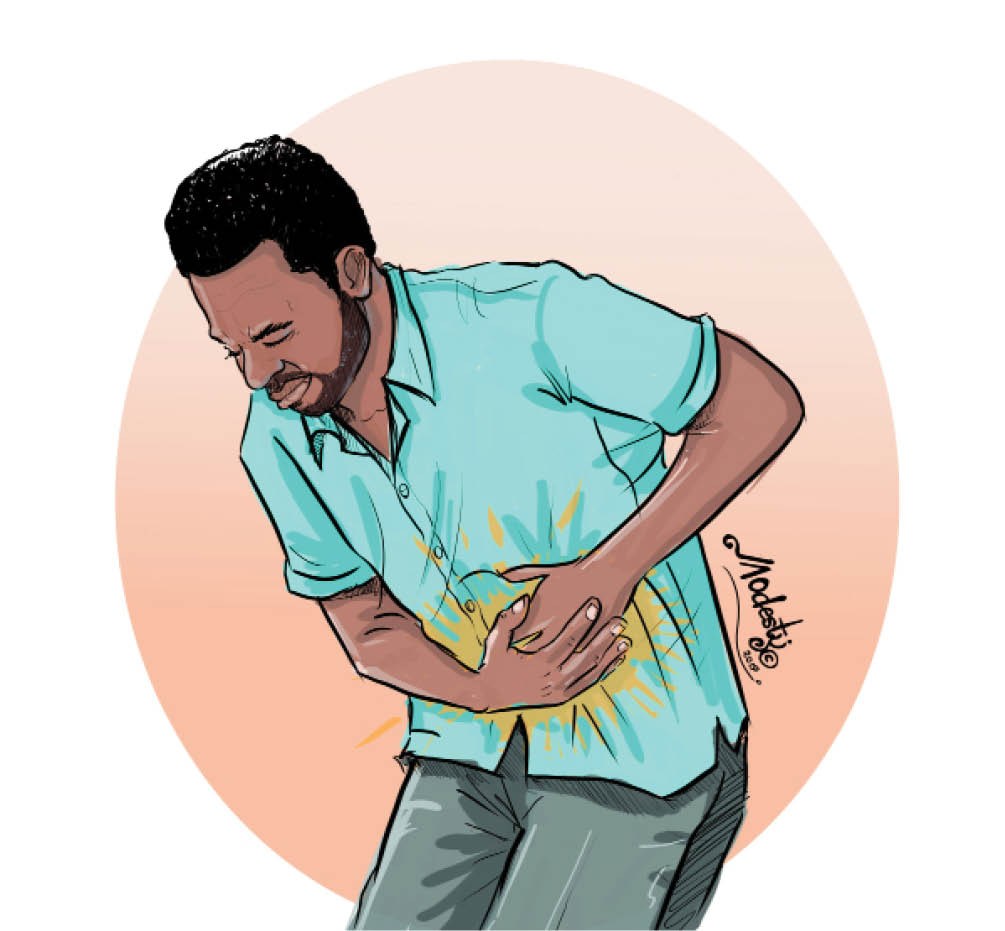What to know about gastritis
Martha said for several months she kept feeling persistent burning pain in her upper abdomen which grew worse whenever she finished eating. She also suffered from nausea and bloating. Initially she felt relieved from the indigestion when she drank water, but with time the pain got worse. She went to the hospital and was diagnosed […]

Martha said for several months she kept feeling persistent burning pain in her upper abdomen which grew worse whenever she finished eating. She also suffered from nausea and bloating. Initially she felt relieved from the indigestion when she drank water, but with time the pain got worse. She went to the hospital and was diagnosed with gastritis.
According to Dr Obekpa Solomon, a Senior Registrar of the Gastroenterology unit in Benue State University Teaching Hospital (BSUTH), Makurdi, Gastri in medicine means stomach and when ‘tis’ is added, it means inflammation.
“So gastritis means inflammation of the stomach and in essence, it refers to an injury to the stomach,” he said.
Dr Solomon said some of the common causes of gastritis are alcohol, and most body pain drugs that people take off the counter.
He said: “These drugs can cause serious injury to the stomach and result in gastritis.”
He said another common cause of infection is the bacteria called, ‘helicobacter pylori.’
The physician said other causes are chemical substances that irritate or cause injury to the stomach. Even the concoction of herbal medicines could also cause injury to the stomach, he said.
He said the commonest symptom of the condition is pain. “Sufferers complain of chest pain. You know the stomach is behind the bone in the chest, so it comes with chest pain, vomiting or nausea. Sometimes, the patients vomit blood,” he said.
The medical expert said preventing gastritis involves avoiding certain drugs.
“Some people take pain relief drugs for everything. They just go to chemist without a doctor’s prescription. People should avoid taking drugs anyhow, especially pain relievers without prescription.
“For ‘helicobacter pylori,’ when the symptom such as chest pain shows up, usually burning in nature, the sufferer should go to the hospital and while being investigated and treated should stay away from certain emotions as the bacteria is spread by kissing through saliva. If your own is eliminated, you can’t spread it in the environment. Alcohol intake should also be reduced. Avoid corrosive things like herbal concoction.”
How does one differentiate gastritis from ulcer?
Dr Solomon said every ulcer is gastritis because it is injury to the stomach.
“There is what we call gastric erosion, that is, it has touched the stomach but has not turned to an ulcer yet. So there are different levels of gastritis. There is also acute and chronic gastritis. Pain on eating; When the sufferer eats, it irritates the stomach,” he said.
Medical experts at Mayo Clinic said although your doctor is likely to suspect gastritis after talking to you about your medical history and performing an exam, you may also have one or more of the following tests to pinpoint the exact cause:
– Tests for H. pylori. Your doctor may recommend tests to determine whether you have the bacterium H. pylori which may be detected in a blood test, in a stool test or by a breath test.
– Using a scope to examine your upper digestive system (endoscopy).
– X-ray of your upper digestive system.
The experts said treatment of gastritis depends on the specific cause. Acute gastritis caused by nonsteroidal anti-inflammatory drugs or alcohol may be relieved by stopping use of those substances. Medications used to treat gastritis include:
-Antibiotic medications to kill H. pylori.
-Medications that block acid production and promote healing. Proton pump inhibitors reduce acid by blocking the action of the parts of cells that produce acid.
Long-term use of proton pump inhibitors, particularly at high doses, may increase your risk of hip, wrist and spine fractures. Ask your doctor whether a calcium supplement may reduce this risk.
-Medications to reduce acid production. Acid blockers — also called histamine (H-2) blockers — reduce the amount of acid released into your digestive tract, which relieves gastritis pain and encourages healing.
-Antacids that neutralize stomach acid. Your doctor may include an antacid in your drug regimen. Antacids neutralize existing stomach acid and can provide rapid pain relief.
